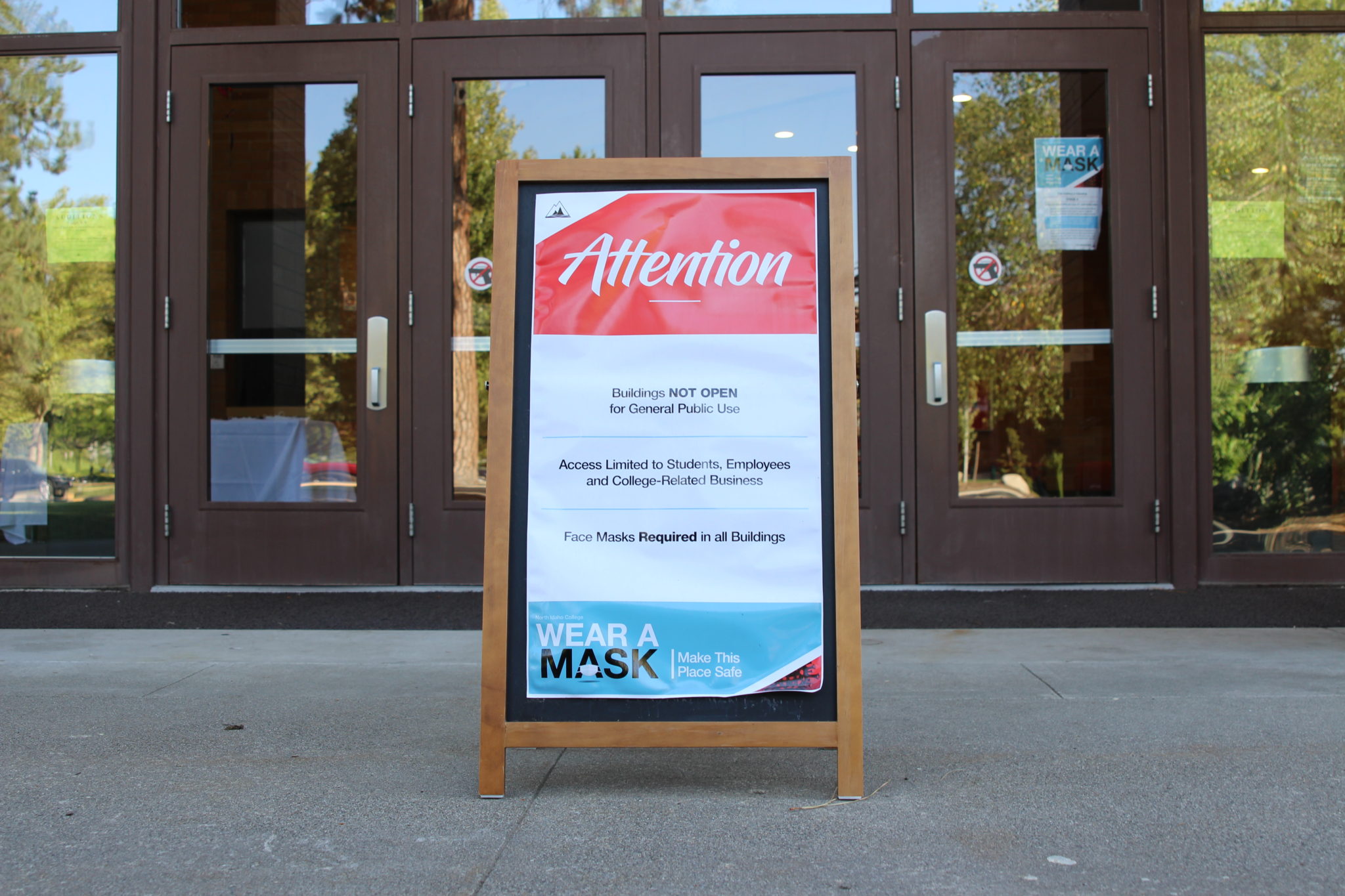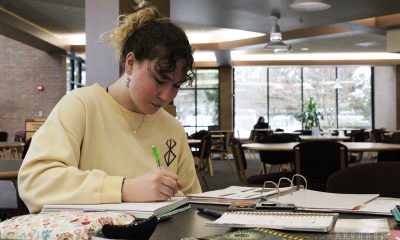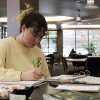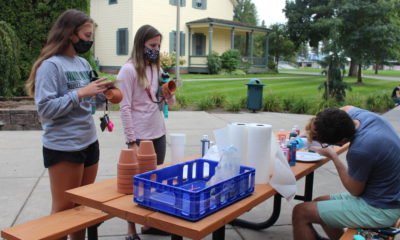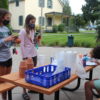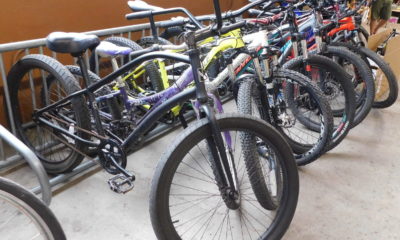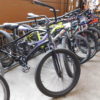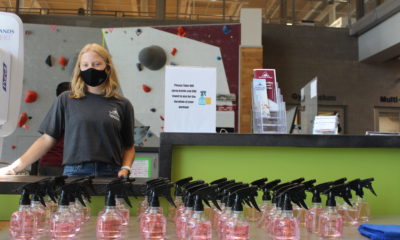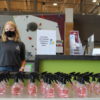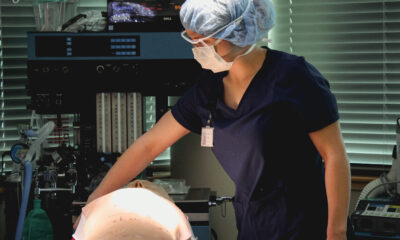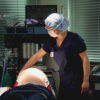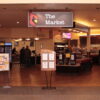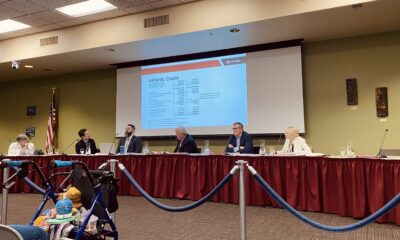Campus Life
COVID-caused campus changes
Like other colleges across Idaho, North Idaho College decided to open its campus for in-person classes with safety guidelines in place to minimize the spread of COVID-19 but keep the learning experience as top-notch as possible.
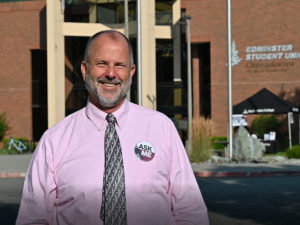
Graydon Stanley, vice president for student service, said he is feeling really good about the enrollment numbers for the year. Photo courtesy of NIC marketing and communications.
Graydon Stanley, vice president for student services, said they were happy to see that the enrollment numbers have not dropped this year as much as they had prepared for. When NIC put together its budget for this year, the school projected it on having 9% fewer credits. However, enrollment as of this week was only down about 2.5% as of Tuesday compared to the same time last year. This number is based on full-time equivalent (FTE) numbers, which is counting credits, not a total headcount of students enrolled. There are 4,478 students enrolled in NIC as of Tuesday compared to 4,711 last year, a 4.9% decrease in headcount. From this data, there are fewer students enrolled in NIC, however, those students are taking a higher amount of credits, which gives them a lower drop in FTE, the number Stanley said is most important to them.
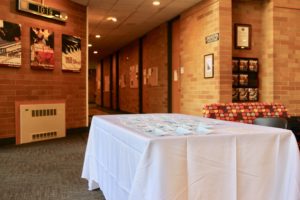
For the first two weeks of school, tables like this one in Boswell Hall provided disposable masks for students.
“We are feeling cautiously optimistic about that,” said Stanley.
Those are not the final numbers as some dual credit students still have yet to register as not all high schools have started in the area. Students also have until Sept. 8 to drop classes for a full refund so the numbers will likely fluctuate in the next few weeks. There are also late start classes which will change enrollment numbers. Enrollment numbers won’t be finalized until Oct. 15th.
With COVID changes, for the fall semester, about 60% of credits taken involve some face-to-face learning, whether they be fully face-to-face or hybrid. Forty percent are purely online. Currently, there are 321 courses offered online compared to the 230 courses in 2019. There are only 384 fully face-to-face courses offered this year compared to 903 in 2019. However, hybrid classes have increased from 146 to 420. In total, there are 134 fewer classes offered this year than in 2019.
For some students, the virtual environment and less face-to-face time have made it harder to make new friends this semester.
“It’s a little difficult because people shy away from getting close, so trying to get to know people on campus has been very difficult,” said Joseph Eberharter, a music student who started classes at NIC this summer. “I agree with keeping students safe and being able to have an open campus. For me its easier to learn being here, so the fact that they’re making the masks being worn I think is acceptable precautions for our higher education.”
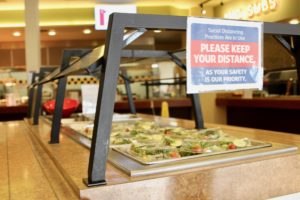
The Market in the SUB continues to operate with changes including prepackaged salads at the salad bar.
Currently, Stanley said they are hopeful to keep the students on campus throughout the semester.
“There are a number of triggers that would tell us it’s probably time to go online,” Stanley said.
These include large outbreaks of the coronavirus, students failing to comply with the safety guidelines, and the risk of COVID increasing measurably. NIC is following the CDC protocol to determine how to handle the situation of outbreaks on campus.
Students who test positive for COVID-19 are asked to remain home for 10 days. They can also self-report to Student Health but that is not required. As of Wednesday, the school has had six self-reported positive student cases and one positive employee case. Because the safety guidelines were in place so no direct contact with another individual occurred, classes with these students enrolled in them continued to meet following CDC protocol. Classrooms are cleaned and disinfected each evening as well as regular cleaning of high touch surfaces throughout the day.
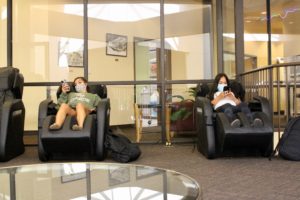
Nursing students Celena Fox, left, and Shelby Schmitt take advantage of the free massage chairs upstairs in the SUB, spaced apart for social distancing.
“We don’t get as great of a learning experience because we have to come into the big rooms instead of Meyer Health and Science where we were before,” said Celena Fox of CDA who is finishing her fourth year in the nursing program, “so it’s harder for lectures, it’s harder to hear professors, it’s harder to concentrate when we have masks on and we’re all sitting apart. I feel like it’s kind of declined our experience.”
Her friend, Shelby Schmitt of Alaska who is also finishing her fourth year in the nursing program, noted that there seemed to be less activity on campus and shared Fox’s opinion on masks.
“I wouldn’t say it necessarily makes me feel any safer either, it’s more just like an extra step for the day,” said Schmitt, “but I mean it’s also not that hard to put on a mask.”
As far as the Residence Hall, the capacity has dropped from 198 to 103 as changes have been made to give each student their own room with a shared living space. Previously there were two students per room with shared living space. Students are required to wear masks in the Residence Hall except for when in their private rooms. There are two unoccupied rooms reserved for quarantining if a student in the dorms tests positive or has a positive exposure. Stanley said the Residence Hall will stay open unless the numbers of positive tests are so high that there is no way to properly quarantine those students.
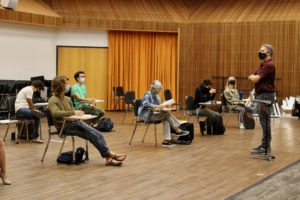
Dwayne Huff teaches the first level of music theory class on Wednesday with students masked and spread out for social distancing.
“From the student standpoint, they all just want to get back to as normal as possible, so students have been great about it,” said Dwayne Huff, assistant professor of music. “For me, just physically I’m more tired for sure. I have a lot more vocal fatigue from talking through the mask, so I definitely felt it physically after the first week of teaching. But as far as the everyday instructional stuff in the classroom, it’s been great and the students have been wonderful.”
Huff teaches Intro to Music, piano, and music theory classes at NIC. Like other classes, the available seats for his classes have been reduced or larger room accommodations have been made to allow for social distancing.
“The one thing as a teacher that’s hard for me looking out at a classroom of students wearing masks is just looking at their faces when I’m introducing a new concept or something and you get that feedback from facial expressions that’s definitely limited,” Huff said. “I have to do a lot more checking in verbally.”
NIC requires masks to be worn in all buildings as well as social distancing of six feet even when masks are worn. Students are asked to self-monitor their health before coming to campus and practice hand hygiene.
Students who don’t comply with the safety guidelines are given a warning. If they continue to ignore these requests, they are put under disciplinary action. If they continue to ignore these guidelines, they will be expelled from the school permanently.
“It’s not because a student didn’t wear a mask,” Stanley said, “it’s because a student didn’t comply with a reasonable request for health and safety.”
Stanley said warnings have been given, but no disciplinary action has had to be taken to this point.
“Our hope is that this plan works,” Stanley said. “We think we’re doing all the right things. We are following the directions of the CDC and other experts. We’re asking for people to cooperate because it’s for the good of all and we’re hoping that works. And what works looks like we’re able to continue offering classes face-to-face as well as online and provide those options to students and not have to take away one of them because it’s not safe anymore.”
There are 245 active cases of COVID-19 in Kootenai County as of Thursday.
Hannah Neff is a journalism and photography student at NIC. She enjoys taking photos of the beautiful Northwest and performing with the Chamber Singers. When Hannah isn't working in the Sentinel office, you can find her hanging out at the lake or doing a photoshoot downtown.


